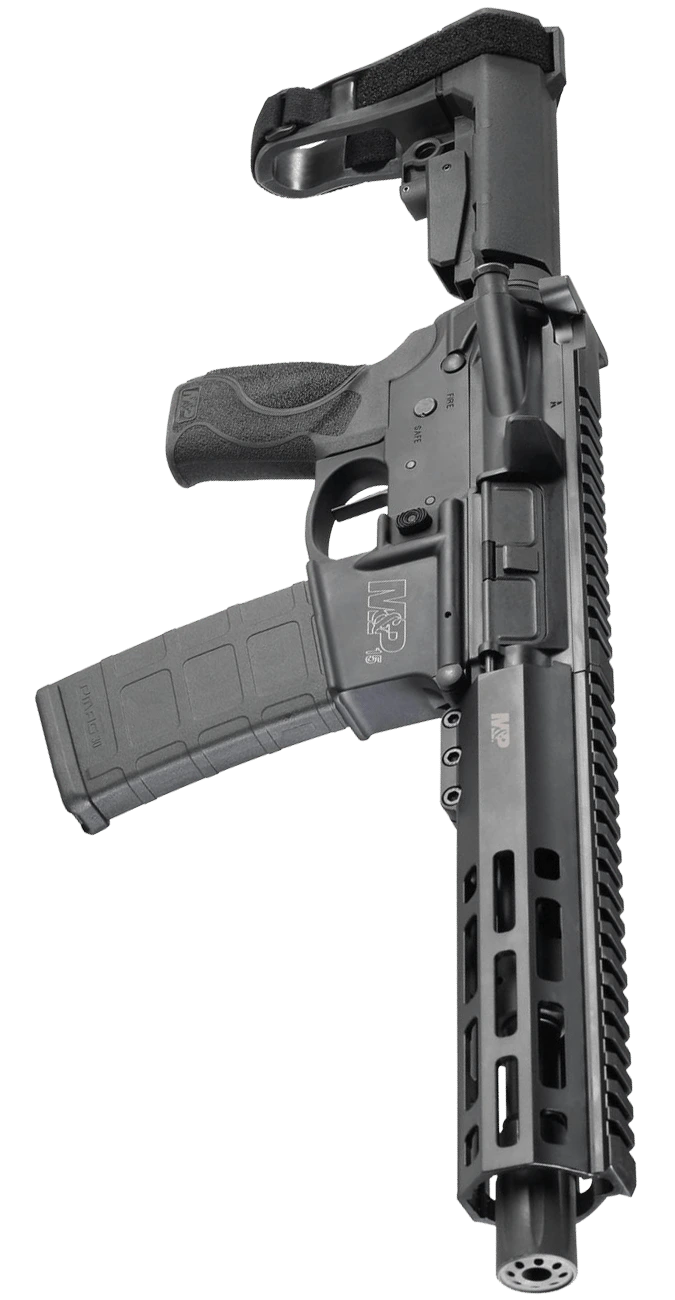Are Zastava Serbian AK-47's banned from import?

In July, Serbian President Aleksandar Vucic decided to ban arms exports for 30 days. This is a result of the United States sanctioning Serbia's spy chief for the illegal trade of arms. Serbia says it's because they need to fulfill the needs of the Serbian army and maintain combat readiness for the Balkan region.
Defense Minister Miloš Vučević says,"It does not mean Serbia is going to war or calling for war, but we are looking at all security risks and challenges."
Since the ban has gone past 30 days, no official dialogue has been released that has lifted the ban, which was set up to be allowed to extend another 30 days indefinitely.
At the time, Zastava's factory in Serbia had said that exports are going to continue. Zastava is currently the fastest growing AK brand on the market and the demand for their Serbian AK-47's is at an all time high. Thankfully, DEGuns acquired a large amount of Zastava inventory prior to the ban. You can find the entire lineup of Zastava AK's on their brand page Zastava Arms USA.
The short answer is No, Zastava Ak-47's are not officially banned from import. However, the Serbian government has not made it clear when and how normal operations will resume.
Serbia's Recent Conflicts, Arms Export Ban, and the Surging Demand for Zastava AK-47s in the USA
Serbia, nestled in the heart of the Balkans, has a history marked by a series of conflicts and political complexities. These challenges have left an indelible mark on the nation's trajectory, influencing its policies, economy, and international relations. This article delves into Serbia's recent conflicts, explores the ramifications of its decision to ban arms exports due to corruption, and assesses how this ban has sparked increased demand for Zastava AK-47s in the United States.
Serbia's Recent Conflicts
Yugoslav Wars (1991-2001)
The Yugoslav Wars, spanning a decade from 1991 to 2001, marked one of the most turbulent periods in Serbia's history. These wars erupted in the aftermath of the dissolution of Yugoslavia, pitting various ethnic groups against one another in a deadly struggle for territory and autonomy.
Serbia, as the largest and most influential republic within Yugoslavia, was central to these conflicts. The wars included the Croatian War of Independence, the Bosnian War, and the Kosovo War. These conflicts resulted in widespread loss of life, displacement of populations, and extensive economic devastation.
Kosovo Conflict (1998-1999)
Among these conflicts, the Kosovo War stands out prominently. It involved Serbian forces clashing with Kosovo Albanian separatists, eventually leading to NATO intervention. The war concluded with Kosovo declaring independence from Serbia in 2008, a move Serbia has never recognized, continuing to view Kosovo as an integral part of its territory.
Post-Conflict Rebuilding
Following the Yugoslav Wars and the Kosovo Conflict, Serbia embarked on a challenging journey of reconstruction. The nation had to rebuild its economy, infrastructure, and political institutions while grappling with the profound social and psychological scars left by the conflicts. Serbia aimed to reintegrate into the international community and reestablish itself as a stable nation.
The Kosovo Issue
The status of Kosovo remains a contentious and unresolved issue, straining Serbia's international relations. Serbia's refusal to acknowledge Kosovo's independence has hindered its progress toward European Union (EU) membership and sustained regional tensions.
Corruption Challenges
Corruption has been an ongoing challenge in Serbia, affecting various sectors, including law enforcement, politics, and business. The presence of corruption has raised concerns about the misuse of firearms, prompting Serbia to take measures to address these issues.
Serbia's Arms Export Ban Due to Corruption
Serbia has faced mounting criticism and international pressure over allegations of corruption within its arms industry. This has raised concerns regarding the illicit trade of firearms and the potential consequences for both domestic and international security. In response to these allegations and international scrutiny, Serbia's President Aleksandar Vucic made the decision to ban arms exports. This ban was initially intended to last for 30 days but has continued indefinitely. The government cited the need to fulfill the requirements of the Serbian army and maintain combat readiness in the volatile Balkan region.
Impact on the Arms Industry
Serbia has a well-established arms industry, with Zastava Arms being a prominent manufacturer, known for its production of a wide range of firearms, including the highly sought-after Zastava AK-47. The export ban directly affects these manufacturers and their revenue streams. The arms industry has been a significant contributor to Serbia's economy, and this ban has the potential to lead to economic challenges and job losses within the sector.
Addressing Corruption
The arms export ban underscores Serbia's commitment to tackling corruption within its arms industry and ensuring responsible arms trade practices. By imposing this ban, Serbia aims to improve transparency, accountability, and the integrity of its arms trade, aligning with international standards and expectations.
Diplomatic Consequences
The ban on arms exports may have diplomatic repercussions, potentially straining Serbia's relations with countries that have relied on Serbian arms. Furthermore, it may impact Serbia's aspirations for EU membership, as the EU places significant emphasis on combating corruption and ensuring responsible arms exports.
Surging Demand for Zastava AK-47s in the USA
Amidst Serbia's decision to ban arms exports, particularly the renowned Zastava AK, the United States has seen a surge in demand for these firearms. The Zastava AK has garnered a strong following among firearms enthusiasts in the US, and its popularity has been steadily rising. If there is a disruption in the supply chain from Serbia, American consumers and firearms dealers will seek alternatives to meet their demand for these iconic rifles.
1. Popularity of Zastava AK-47s: Zastava AK-47s have gained a reputation for their reliability, affordability, and performance. As a result, they have become a favored choice among firearm enthusiasts and collectors. The ban on Serbian exports has intensified interest in these firearms, contributing to increased demand in the US market.
2. Impact on Prices: The heightened demand for Zastava AK-47s in the USA may lead to higher prices due to limited availability and increased competition among buyers. This price increase could impact both consumers and dealers in the firearms market.
3. Legal Considerations: The surge in demand for Zastava AK-47s in the United States may also prompt legal considerations. US authorities may closely monitor the importation and sale of these firearms to ensure compliance with regulations and prevent any potential diversion into the illicit arms trade.
Serbia's recent conflicts, coupled with the decision to ban arms exports due to corruption concerns, underscore the complex challenges the nation faces. While Serbia has made substantial progress in rebuilding and stabilizing since the Yugoslav Wars and the Kosovo Conflict, ongoing political and diplomatic tensions, particularly regarding Kosovo, remain.
The arms export ban reflects Serbia's commitment to addressing corruption, enhancing transparency, and promoting responsible arms trade practices. However, it also has significant economic and diplomatic implications. Balancing these factors will be crucial for Serbia's future stability and prosperity.
Simultaneously, the surge in demand for Zastava AK-47s in the United States highlights the global reach of firearms manufacturing and trade. The popularity of these rifles among American enthusiasts has led to increased demand and potential shifts in market dynamics.
As Serbia navigates these complex challenges, it must consider the domestic and international factors at play, aiming for a stable and prosperous future while addressing issues of corruption and promoting responsible arms trade practices.



